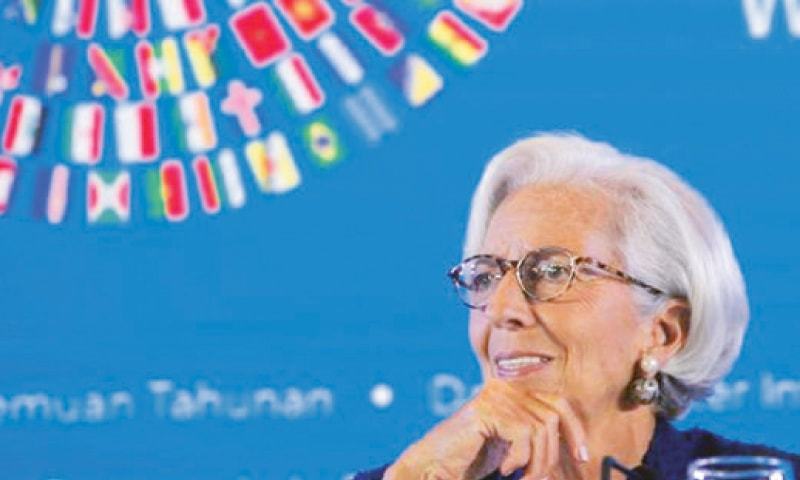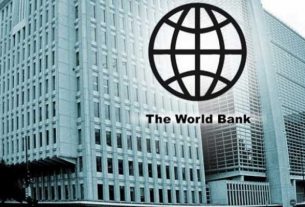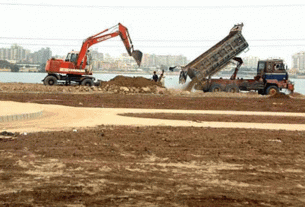THE emerging consensus on the broad objectives of the International Monetary Fund (IMF) stabilisation programme has been reinforced by the meeting of Prime Minister Imran Khan with IMF Managing Director Christine Lagarde, held recently in Dubai. However, the prolonged negotiations show that views on specifics and pace of reform differ sharply.
This time, based on decades of past experience, there is a heightened national awareness that cyclic spurts of economic growth have been followed by frequent and escalating fiscal and balance of payments crises. Stabilisation efforts have not led to sustainable, inclusive and job producing economic development.
It has been argued that IMF stabilisation programmes — essentially in the nature of fire fighting — has not been followed by deeper reforms necessary for achieving sustained growth. The past governments either lacked the will or succumbed to the pressure of strong domestic lobbying, weakened as they were by divisive politics and institutional wrangling.
Instead, as the stability programmes widened the doors for accessing foreign debts, successive governments opted for more borrowing from multilateral and bilateral lenders and the international market.
IMF stabilisation programmes have not been followed by deeper reforms necessary for achieving sustained growth
Meanwhile domestic savings and investment rates remained subdued and, barring short intervals, the gap between imports and exports widened. This led to a surge of debt servicing — $5.4 billion in the first two quarters of FY2019.
The current situation requires a long-term strategy with the right priorities and sequence — evolved through a national consensus — and spanning at least more than one five-year tenure of fragile coalition governments. However, nothing of the sort seems to be happening.
Policymakers have taken some significant fiscal and monetary measures but they fall short of the lender’s expectations. Nonetheless it is recognised by both the IMF and the PTI-led government that ‘deep structural reforms’ are essential for ‘achieving sustainable development in which the most vulnerable will be protected.’
Given the past, the IMF appears to be insisting on the maximum possible reforms in the minimum possible time, while the PTI-led economic team wants a slower pace of adjustment to ensure a less painful process.
The stability programme under negotiation is expected to be finalised for implementation from the next financial year. As long as stability and austerity policies last, growth prospects are likely to remain subdued.
Despite the overall devaluation, as Dr Ishrat Husain says, no phenomenal increase in exports has been witnessed: “The harvest of devaluation could not be reaped owing to foreign buyer’s demand for enhanced rebate.”
Exports may also be affected as the global economic growth slows down. There is a reported move to further reduce import duties on industrial raw materials of export-oriented industries.
Ms Lagarde warned the participants of the World Government Summit of a possible ‘economic storm as growth undershoots expectations.’ “We have no idea how it is going to pan out and what we know is that it is already beginning to have an effect on trade, on confidence and on markets,” she said, warning governments to avoid protectionism.
State Bank Governor Tariq Bajwa argues that devaluation has proved fruitful in curtailing the size of imports which have dropped by 5.17pc in the first seven months of FY2018-19, down from comparative figure of FY2018. But historical record shows that continuing devaluation alone does not help in narrowing the export-import gap on a sustained basis. This time devaluation has been coupled with much tighter regulatory measures to curb imports.
Owing to an increase in utility charges and tight monetary policy, large scale manufacturing, on year-to-year basis, dipped 1.53pc over first half of the current fiscal year compared to a year ago. The sector contracted by 10.2pc in December. The IMF wants a further increase in electricity tariff by 25-30pc and complete liquidation of circular debts.
The Fund has also proposed that the government clear its current Rs3.8 trillion debt borrowed from the central bank by setting quarterly reduction targets and has recommended a shift from the government’s reliance to commercial banks.
This would increase the cost of borrowings of a cash-strapped government by 0.5pc, but it will benefit commercial banks which are likely to face rising lending risks in slackening economic growth. The government has already started to follow the IMF’s advice.
The IMF is insisting that the primary budget balance (that excludes interest payments), estimated at a negative 2pc in FY 2017-18, should be zeroed in two years to generate resources for debt servicing.
Regarding growth outlook, the central bank governor says the real inflation rates are significantly positive and would help manage aggregate demand and reduce output gap closer to sustainable levels. However, the inflation rate rose to 7.19pc in January.
Ms Lagarde says that protecting the poor and strengthening governance are key priorities to improve living standards. Though ‘protecting the poor’ from receding growth is important, it is imperative to create enough decent jobs with fair wages to enable the unemployed to lead a dignified life on their own.
Out- of- box thinking is required to put the economy on a sustainable, inclusive development as opposed to following a strategy of economic growth that may or may not produce enough jobs.
‘Ideas have become prisons’ says John Ralston Saul, in his book on ‘Collapse of Globalisation,’ as neo-liberals look ‘at civilisation from an economic prism … and want democratic governments to be appropriately disciplined by international financial markets.’



